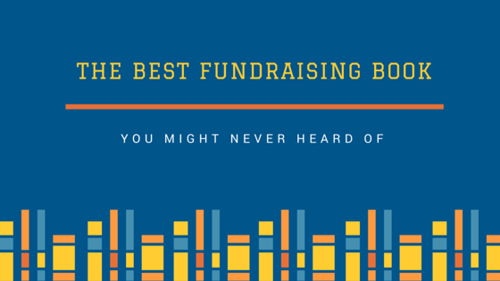The Best Fundraising Book You Might Never Heard Of
3 min read
Date Published: 03/31/2016
Last Updated: 11/10/2021
National Fatherhood Initiative Blog / Latest Articles
3 min read
Fundraising is one of the biggest challenges in starting and maintaining a fatherhood program. (Not to mention a challenge in running National Fatherhood Initiative®!) That's why you must read the following book.

It's called The Generosity Network.
Written by acclaimed fundraisers Jennifer McCrea and Jeffrey C. Walker, it's subtitle is: New Transformational Rules for Successful Fund-Raising. Aside from the interesting spelling of fundraising and a surprising-to-me foreward by Deepak Chopra, they describe several fundraising tools I'd never heard of, such as the "Jeffersonian Dinner" and "Tapping the Power of the Avatar."
But what I found most helpful is their perspective on fundraising--one that I encourage you to adopt--and their recommendations for overcoming one of the hardest things to do in fundraising, approaching and asking people (potential donors) for money. I'll share their recommendations in just a moment.
All too often fundraisers approach their craft from a transactional standpoint--I have something of value (a cause), and I want you to give me money to support that cause. That approach is not all that different from the one a consumer takes when buying a product or service.
The perspective McCrea and Walker promote is one of entering into a relationship with a donor that promises "partnership" and "personal growth" for the donor. Fundraising:
"...is not about money--it's about energy, creativity, human connections, and joy...it touches desires, dreams, and yearnings that are much bigger than your [the fundraiser's] personal goals, ambitions, and challenges, or even those of your organization. They are universal--the shared inheritance of every human on earth--and ready to be tapped."
If you've started to think this perspective is some hokey new age take on fundraising, jettison that thought. The book is quite practical. McCrea and Walker don't just tell you how to view fundraising, they give you the tools and actions to implement that perspective along with examples of how they and others have used those tools and actions to successfully raise funds for different causes. I have no doubt you can apply their advice to fundraise for your fatherhood program or other fatherhood-related effort.
As promised, I'll share one of the practical pieces of advice they provide as an example of just how useful this book can be for you.
Perhaps the greatest fear--"terrors" according to the authors--of fundraisers, especially those of us who aren't "professional" fundraisers, is overcoming five barriers to asking donors to join as partners in your cause. Here are these terrors and a piece of advice they offer for overcoming each one. (You'll have to get the book for their additional advice.)
I hope you find The Generosity Network as insightful and useful as I have.
I also encourage you to learn more about how to succeed in fundraising for a fatherhood program by obtaining your Father Engagement Certificate™. This online, on-demand training includes a comprehensive session on how to raise funds from private sources.
What perspective do you have in raising money for your fatherhood program?
Have you taken advantage of all NFI has to offer to help you fundraise?
Are you a dad looking for help? Please visit our Fatherhood Program Locator™ and enter your city and state on the map to find programs and resources in your community.
Date Published: 03/31/2016
Last Updated: 11/10/2021
Download the ebook to learn how to create fatherhood initiatives that engage every sector of community life.

Train Your Staff
Fatherhood Programs
Fatherhood Data
© 2025 National Fatherhood Initiative®. All rights reserved.